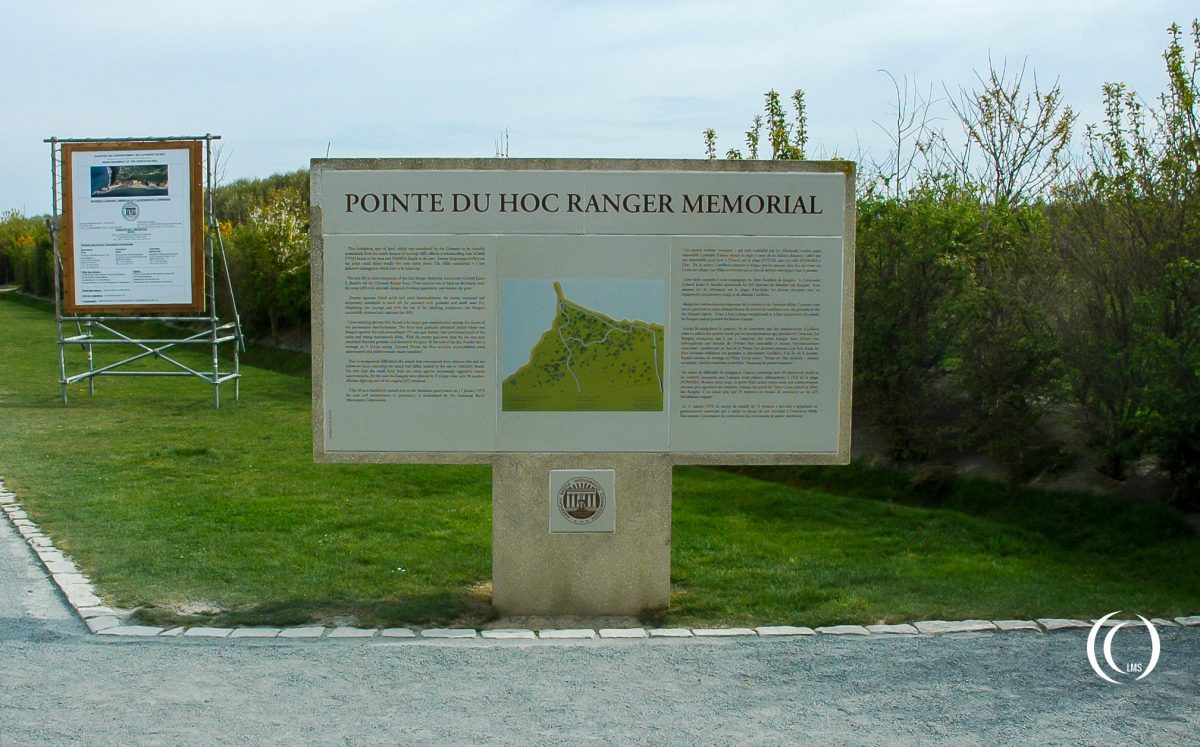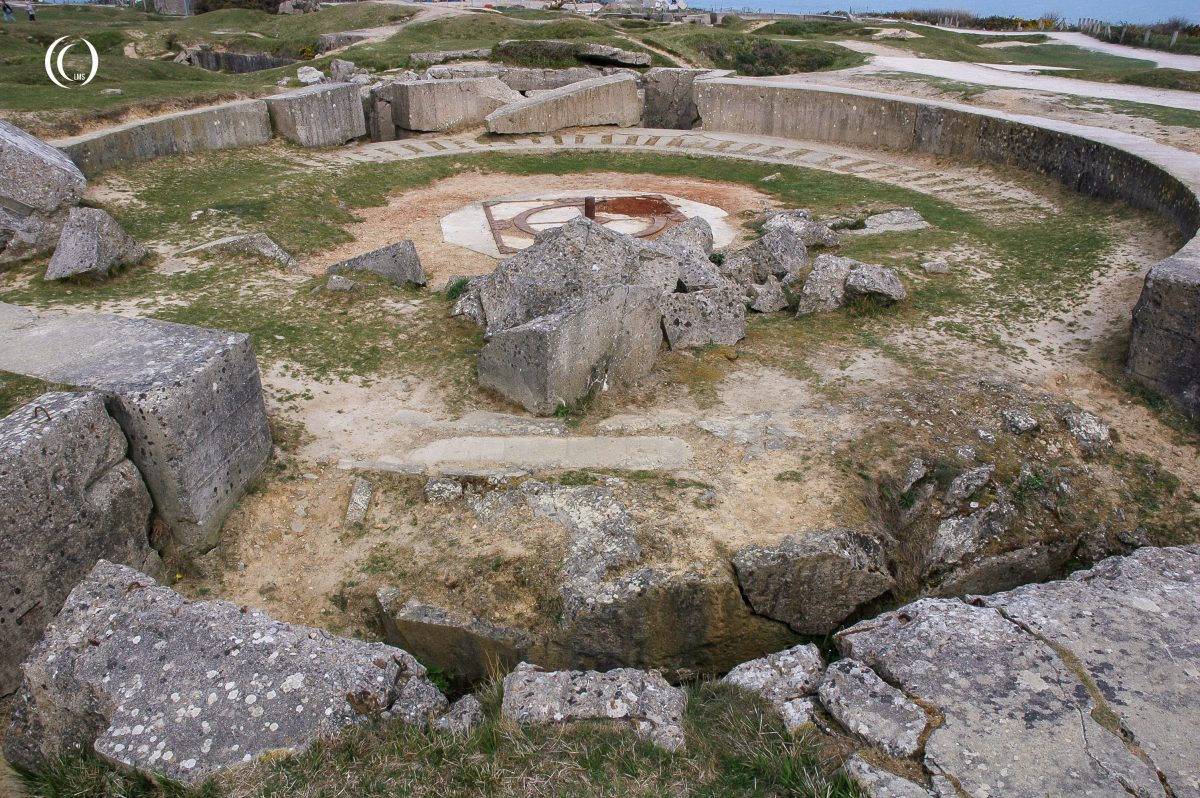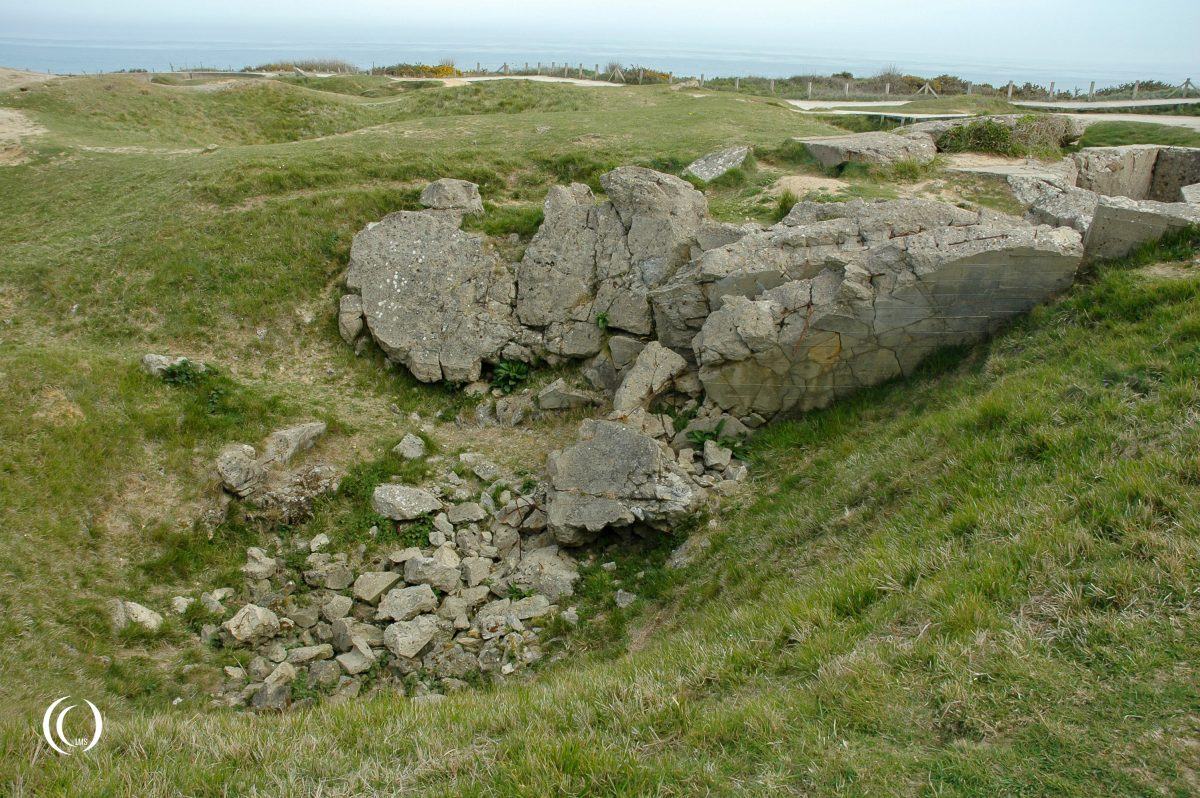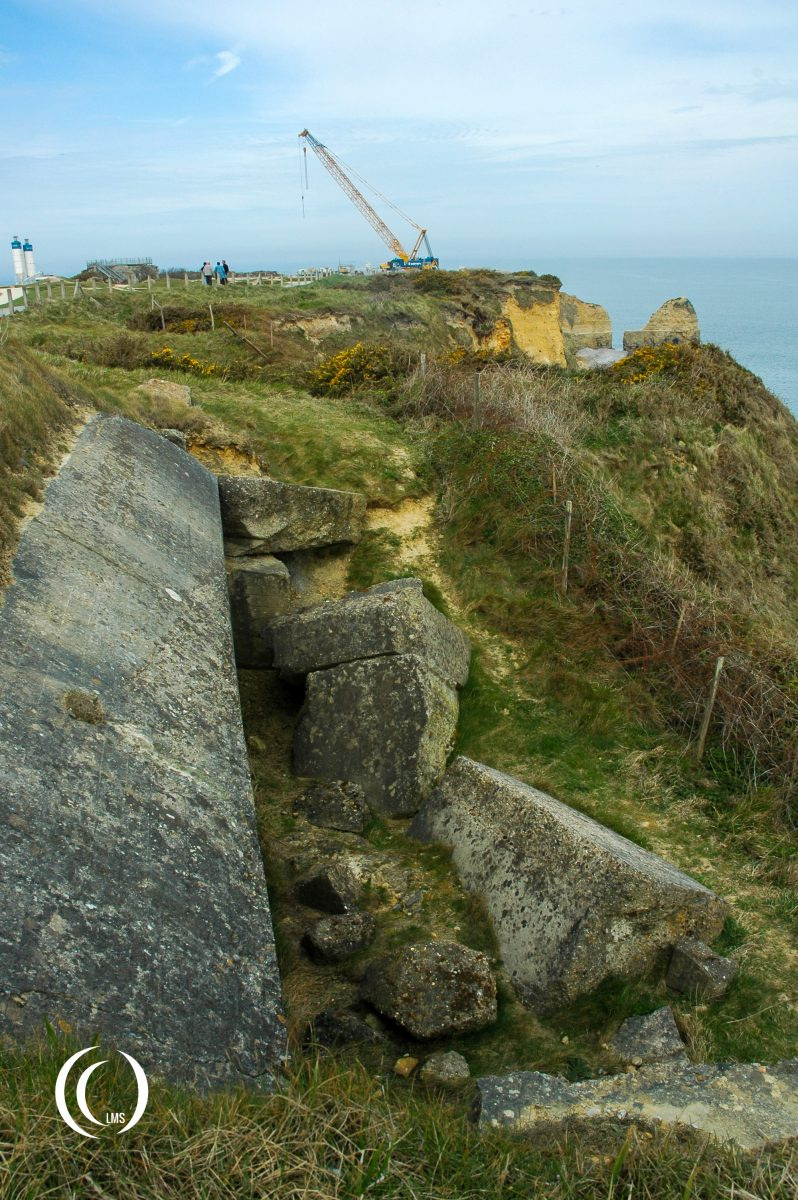Situated between the Utah and Omaha Beach, a strongpoint built by Organisation Todt, with an artillery battery of six captured French 155mm guns at Pointe du Hoc, presented a major threat for the D-Day landings of the Allied forces. Despite the fact that the battery received several bombings from the air combined with naval bombardments, reports indicated the strongpoint was so heavily fortified that it required an attack by ground forces.
This dangerous objective was given to the US 2d Ranger battalion which had the task of destroying the battery in the early morning before the D-Day This dangerous objective was given to the US 2d Ranger battalion which had the task of destroying the battery in the early morning before the D-Day landings.

On the 4th of June 1944, two days before D-day, the heavy guns were moved further inland (approximately 1 mile) and replaced with dummies to fool Allied forces. This was probably due to the concentrated bombings on Pointe du Hoc prior to the attack. When the Rangers found out the guns were moved, they sent out a small patrol to find them. Five of the six guns were found in nearby locations and destroyed. On the 7th of June, after holding off several German counterattacks and with heavy losses, the Rangers were relieved from their isolated position by the US 116th Infantry Regiment which broke through from Omaha Beach.

Visit the Ranger Memorial
At Pointe du Hoc it becomes very clear what hardships the US 2nd Rangers had to endure to get a foothold on this part of the Atlantic Wall, between Omaha Beach and Utah Beach. Once you have witnessed the height and the steepness of these cliff walls (20 meters) the Rangers had to overcome and the German ingenuity of this part of the coastal defense line, it seems like an almost undoable task. The traces of the bombardment haven’t faded the slightest and it is very impressive to see the enormous impact craters of the bombings, still marking the countryside.



During our visit in 2010 part of the site was not accessible due to cliff stabilization works, to prevent the site from slowly crumbling into the sea.



